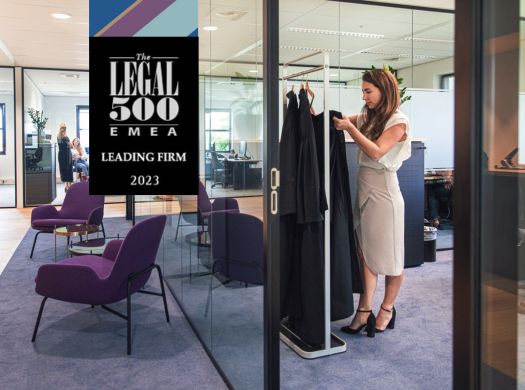HR 5 July 2024, ECLI:NL:HR:2024:1022, Supreme Court, 23/00813 (jurisprudence.nl)
What happened?
During a ride by some friends in a passenger van, a passenger suddenly pulls the handbrake. The van goes into an uncontrolled skid and collides with a pillar. The person behind the wheel is seriously injured. He claims compensation from the van’s WAM insurer.
Dutch law & the European WAM Directive
According to Art. 4(1) WAM, the insurer does not have to provide coverage for the damages of ‘the driver’ of the motor vehicle that caused the accident. This section of the law is an elaboration of the WAM Directive, which allows this one exception to compulsory WAM cover.
This case therefore revolves around whether the person behind the wheel lost ‘the capacity of driver’ when the occupant suddenly applied the handbrake, rendering the car uncontrollable.
Ruling court and court of appeal
The court ruled in favour of the person behind the wheel. After applying the handbrake, he could no longer control the car: he could no longer determine the direction and speed of the car. The person behind the wheel was therefore no longer a ‘driver’ at that point. According to the court, the WAM insurer therefore had to provide cover.
The court ruled differently. According to the court, the person behind the wheel had always remained the driver: he had taken the driver’s seat, he had set the van in motion and determined the speed and direction of travel. He did not cease to be the driver merely because another person also performed a driving act by pulling the handbrake.
This judgment was appealed in cassation.
Opinion of the Advocate General (A-G): ‘acte clair
The Advocate General earlier advised the Supreme Court to annul the judgment of the court of appeal. According to the A-G, it is clear that the person behind the wheel ceases to be a ‘driver’ if he can no longer exercise ‘control’ over the car due to the actions of a passenger.
According to the A-G, it is irrelevant whether the passenger intentionally takes over the steering or accidentally deprives the person behind the wheel of control. Think of a co-driver who accidentally deprives the driver of his view of the road with a newspaper, an occupant who spills hot coffee on the person behind the wheel when opening a thermos or accidentally elbows him, causing the driver to be startled and lose control of the wheel. Even in those cases, the driver is no longer a driver.
According to the A-G, that is an acte clair, i.e. ‘a cat in the tank’. The A-G takes into account how this WAM issue is decided in Belgium in civil case law. There, one is a driver as long as one has ‘mastery’ or ‘maîtrise’ in French, over the car. If the driver loses this maîtrise at any time through the actions of an occupant, he is no longer a driver.
Supreme Court ruling
The Supreme Court takes a different view of the case than the A-G. According to the HR, it is not clear when a driver ceases to be a driver.
The HR considers that the term ‘driver’ in the WAM must be interpreted in accordance with European rules on WAM insurance. The Court of Justice of the EU has pointed out the importance of the protection of occupants in several rulings on those rules. The question is whether Article 12(1) of the WAM Directive 2009/103 should be interpreted to mean that WAM insurance should cover liability for the damage of the (initial) driver when an occupant interferes with the steering of the motor vehicle and an accident occurs as a result.
A second question is whether other circumstances are relevant to the question of whether a person has lost the capacity of driver so that he can claim coverage under WAM as an occupant. Consider whether the passenger deliberately interfered with the steering or not.
The Supreme Court has referred these questions to the CJEU.
Continued
The Supreme Court first waits for the European Court to answer its questions. After that, the Supreme Court will give its final ruling taking these answers into account.
Want to know more about Supreme Court and Expert litigation?
Are you conducting appeal proceedings and expecting the case to reach the Supreme Court? Then it is smart to seek advice now from a cassation lawyer about your chances of success if you submit your case to the Supreme Court.
Ekelmans Advocaten has a highly regarded cassation practice. The involvement of our lawyers regularly leads to interesting Supreme Court rulings.
Our Supreme Court and Expert Litigation lawyers are litigation experts, providing insight into the big picture and sharpening the finer points.
We also send a newsletter Civil Litigation Practice to our contacts. Interested? If so, we would be happy to receive your subscription.

































